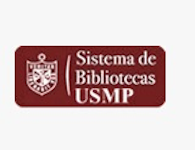Variantes anatómicas asociadas a desviación del septum nasal identificadas por tomografía computarizada en una clínica privada de Lima 2018

View/Open
Trabajo
(application/pdf: 738.3Kb)
(application/pdf: 738.3Kb)
Date
2020Author(s)
Lorena del Pilar, Córdova Sánchez
Advisor(s)
Sánchez Gavidia, Joseph Jesús
ORCID(s) of the advisor(s)
https://orcid.org/0000-0001-8724-3694
Juror(s)
Casanova Saldarriaga, Johnny
Orrillo Huamán, Ricardo
Carreño Escobedo, Ricardo
Orrillo Huamán, Ricardo
Carreño Escobedo, Ricardo
Metadata
Show full item recordAbstract
Objetivo: Describir las variantes anatómicas de los cornetes nasales y el engrosamiento de la mucosa paranasal identificados por tomografía computarizada simple de senos paranasales en pacientes con desviación del septum nasal.
Metodología: Investigación de tipo observacional, analítico, transversal y retrospectivo. Se estudiaron 227 casos de pacientes adultos con deformidad septal, clasificados según Mladina y sus variantes anatómicas identificadas por tomografía computarizada durante el año 2018 en Clínica Internacional de Lima. Los datos se recolectaron en una ficha, se tabularon y analizaron mediante Stata versión 15, con un nivel de significancia del 95%.
Resultados: En los cornetes superiores, solo el 3% tuvo neumatización y el 18.5% estuvo ausente; en los medios, el 70% presentó variaciones siendo la más frecuente la hipertrofia seguido de bulloso y paradójico con un 30.84; 14.98 y 7.98% respectivamente. En los cornetes inferiores, el 75.77% fue hipertrófico. El 64.3% presentó engrosamiento de la mucosa paranasal. La asociación fue estadísticamente significativa entre la presencia de espolón, alteración de la válvula con el tipo de deformidad de Mladina y los tipos verticales fueron los más frecuentes.
Conclusión: Los pacientes con deformidad septal nasal tienen mayor frecuencia de alteración de la válvula nasal y engrosamiento mucoso paranasal. Las variantes anatómicas más frecuentes de los cornetes medios son la hipertrofia y la concha bullosa, en los inferiores la hipertrofia y la presencia de espolón y alteración de la válvula nasal se asocian al tipo de deformidad de Mladina.
Collections
- Tesis de maestría [592]
Subject
Publisher
Universidad de San Martín de Porres
Type of research
https://purl.org/pe-repo/renati/type#tesis
Rights
info:eu-repo/semantics/openAccess
Notes
ABSTRACT
Objetive: To describe the anatomical variants of the nasal turbinates and the thickening of the nasal mucous of paranasal sinuses identificate by simple computed tomography of the paranasal sinuses in patients with nasal septal deviation.
Methodology: Observational, analytical, cross sectorial and retrospective research. The 227 cases of adult patients with nasal septal deformity were studied, classified according to Mladina and its anatomical variants identified by computed tomography during the year 2018 at the Clínica Internacional of Lima. Data were collection on a sheet tabulated and analyzed using Stata version 15 with a level of significance of 95%.
Results: In the upper turbinates, 3% had pneumatization and about 18.5% were absent; in the middle, 70% preseted variations, the most frecuent variant being hypertrophy followed by concha bullosa and paradoxical with 30.84%; 14.98% and 7.89% respectively. In the inferior turbinates, 75.77% were hyperthophy, 64.3% presented thickening of the mucous of the paranasal sinuses. The association was stadistically significant between the presence of spur, alteration of the nasal valve with to the type of Mladina deformity and the vertical types were the most frecuent.
Conclusion: Patients with nasal septal deformity have a higher frecuency of nasal valve alteration and mucous thickening of the paranasal sinuses. The most frecuency anatomical variants of middle turbinates are hypertrophy and concha bullosa, in the inferior are hypertrophy and the presence of spurs and alterations of the nasal valve are associate with type of Mladina deformity.







